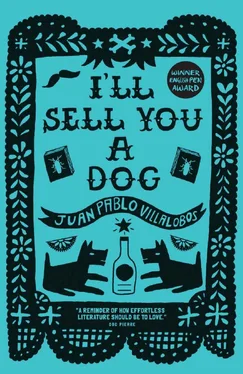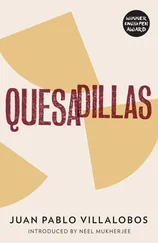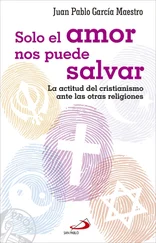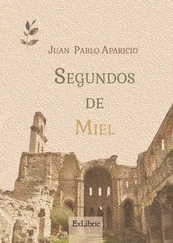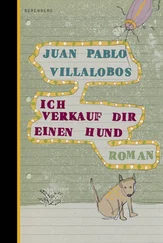‘I have a boyfriend.’
‘A boyfriend?’ Juliet interrupted. ‘Is this what we fought the Sexual Revolution for?’
‘I really am going now, Abue ,’ said Dorotea.
‘Hey,’ I told her, ‘be nice to the kid. He’s ten years younger than he looks. Mentally, I mean.’
She left the greengrocer’s and Juliet went into the back room, returning with two glasses of beer.
‘You’re still seeing the Mormon?’ she asked. ‘He’ll end up converting you before long.’
‘Don’t worry, I’ve been vaccinated.’
‘So?’
‘I’m the one who’s converting him. The kid lacks experience.’
‘Do you feel sorry for him?’
‘It’s not as if he’s a puppy.’
We sipped our beer and, since it wasn’t very cold, the foam traced a fleeting moustache onto Juliet’s lip.
‘I didn’t know you had a granddaughter,’ I said.
‘You never asked me. We waste all our time clowning around. Have you got grandchildren?’
‘No.’
‘Children?’
‘Nope.’
‘Didn’t you tell me you were a widower?’
‘Uh-huh.’
‘So you were lying!’
‘What does that matter? The family is a bourgeois institution!’
‘Maybe you’re a poof?’
‘Yeah, right.’
‘There wouldn’t be anything wrong with that. In this greengrocer’s we respect all denominations, even Buggeration. Are you sleeping with the little Mormon?’
‘Don’t push it, Juliette .’
‘Well then?’
‘Well then what?’
‘Are you a fake widower?’
‘Hey, I didn’t come here to talk about this. You want me tell you what happened or not? You have no idea who’s going around accusing me!’
Another poet died and the entire literary salon crossed the city to go and bid farewell to him at a funeral parlour (this poet had failed to gain access to the Palacio de Bellas Artes). Everyone had gone except Hipólita, whom I found sitting in the lobby caressing with her left hand a worn-out copy of the poet’s poems that was lying in her lap. She had a cast on her right hand.
‘Now today I would have liked to trake the mip,’ she sighed. ‘He was from my tome hown.’
As well as loosening her tongue, the painkillers got it in a twist, switching her letters around.
‘From Veracruz?’
‘Hm-mmm, from Córboda, like me.’
Hipólita had three children who still lived in Veracruz, from where she had escaped after her husband died and bastards sprouted like mushrooms over his corpse. I went over and looked at the cover of the book, so slim it wouldn’t even have served to squash fleas: a drawing of three furious dogs, two of them fighting, rolling around on the ground, and the third, barking at a figurative horizon, which would be located on the spine of the book. Hipólita was stroking them as if trying to calm them down, as if this was what would ensure the poet’s soul rested in peace.
‘Did you cancel your bread-dough-modelling classes?’ I asked.
‘Wo, nhy do you ask?’
‘Your hand,’ I said.
‘Oh, that. I’ve ween borking like this, with one hand. Would you sike to lee?’
She didn’t wait for a reply and went into the room we used as a dumping ground. She came back out with a washing-powder box, from which she started removing the little figures with dire dexterity. They were brightly coloured deformed little lumps, violently aborted birds, expelled from the egg and fried in a pan before they could let out a peep. I could tell they were birds because Hipólita and her students had one-track minds; otherwise it would have been possible to imagine they were anything or nothing at all.
‘They don’t have bittle leaks yet,’ she said apologetically. ‘I’m going to make those when my hinjury has eeled.’
I peered at a sticky blue mess by the light in the lobby.
‘That’s a fittle linch,’ she explained. ‘There’s a lot of them in Veracruz.’
The art of modelling with bread dough, which throughout history had been fervently naive and figurative, had just entered, rather abruptly, its abstract period. Hipólita had skipped all previous stages, and thus her contribution would in all likelihood go unacknowledged. Not even art, which is considered a realm of liberty, is open to anomalies: bread-dough modelling would need first to go through impressionism and cubism, at the very least, in order to be able to understand Hipólita’s figures as evolution.
‘What’s that red stuff?’ I asked, because I’d noticed all the figures were covered in red blotches.
‘That?’ she said, pointing at the belly of the supposed finch.
‘Uh-huh.’
‘It’s blood.’
‘Are they dead?’ I asked.
‘Cow han they be dead if they’re made of dread bough?’ said Hipólita. ‘Do you thike lem?’
She began placing the figures carefully back into the detergent box, as I searched for the appropriate words for the situation.
‘I think you should keep taking those painkillers you’re on.’
I’d signed up in secret for painting classes at La Esmeralda. My sister, who had always been more practical than me and ate papayas instead of looking at them, had gone off to study business. I am able to recognise this only now, almost sixty years later: now my mother was the one who would be punished, in quite a cruel manner. Everything pointed to my sister becoming a secretary. This, along with the length of her legs, horrified my mother. I, meanwhile, was about to repeat the same mistake as my father, who had driven her so mad: confusing passion with vocation. As if it was a matter of genetics, a physical defect or an incurable disease, I was convinced I’d inherited his artistic temperament.
I had gone along to La Esmeralda and discovered very quickly that what really interested me was happening beyond its walls, in the bohemian lives of the students. We used to meet nearby and when the contingent was complete, we’d head for the dingy old bars in the centre. I was enjoying life, I’d found my vocation, until early one morning Turnup stuck his nose into the pocket of the trousers I’d thrown onto the floor by the bed. The next day the dog wouldn’t wake up; his breathing was almost imperceptible and he didn’t respond, no matter how much my mother shook him. In the afternoon she took him to the vet, who diagnosed him with marijuana poisoning. It was a simple diagnosis, you had only to smell his nose, and if my mother hadn’t discovered this earlier it was because she’d never smelled weed. That night, when I got back from ‘taking classes’ at La Esmeralda, Mum was waiting up for me, sitting in the living room, to tell me what the vet had said. It was a clear accusation, but since I had arrived home in a good mood, a little tipsy, and was in no way about to admit my guilt, I tried to play down the drama.
‘Impressive,’ I said. ‘How did the dog manage to light the spliff?’
Mum said only one thing:
‘You do dishearten me.’
I suppose she could have said that I was breaking her heart, but that would have implied a weakness of the muscle in her chest, as if she had a defect that meant she couldn’t deal with disappointments and the disheartening was partly her fault. Instead, she was using the verb with an Aztec sensibility: to dis-hearten, as in to rip out someone’s heart. This way, the fault lay entirely with me. My mother would end up dying from an attack on the heart, which is not the same as dying from a heart attack. She was in the National Medical Centre when part of the cardiology unit collapsed, on 19 September 1985. She was seventy-three years old and, the day before, a heart specialist from another hospital had assured her she was healthy, but she was convinced she was going to die. She kept saying she wasn’t ready yet; the possibility of re-encountering my father terrified her (my father wasn’t dead yet, but she didn’t know this). She insisted on going to the hospital the following day to get a second opinion. As she didn’t have an appointment, she went early so they’d be able to see her: she arrived before 7.19 a.m. She would have survived and lived for a few more years if only she’d paid heed to Schoenberg, whom she had obviously never read: he who doesn’t seek doesn’t find. But does one seek death or is it simply found?
Читать дальше
